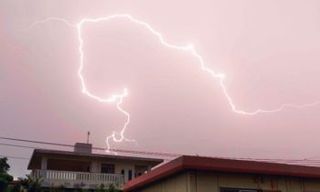"あなたはモンスターではない "と私は言った。でも、私は嘘をつきました。私が本当に言いたかったのは、モンスターとはそれほど恐ろしいものではないということだった。monstrumというラテン語の語源は、大惨事を告げる神の使者であり、その後、古フランス語でケンタウロス、グリフィン、サテュロスといった無数の起源を持つ動物を意味するようになりました。モンスターであることは、ハイブリッドな信号であり、灯台であり、避難所であると同時に警告でもある」- オーシャン・ヴオン(「On Earth We're Briefly Gorgeous」より)。
ライオンの夕暮れ」(キース・コネリー) ラナ・ドゥーゼより
Mostre「怪物、怪獣」(12c. ラテン語のmonstrum「神の前兆(特に不幸を示すもの)、予兆、兆候、異常な形、怪物、怪獣」から直接派生したもので、比喩的には「嫌悪感を抱かせる性格、恐怖の対象、ひどい行為、忌まわしいもの」、monere「思い出させる、(人の)記憶に戻す、(人に)伝える」の派生語です。) 諭す、助言する、警告する、指示する、教える」PIE *moneie-「思い起こさせる、思い出させる」、語源*men- (1) 「考える」の接尾語(使役)形から。 "
“You’re not a monster,” I said. But I lied. What I really wanted to say was that a monster is not such a terrible thing to be. From the Latin root monstrum, a divine messenger of catastrophe, then adapted by the Old French to mean an animal of myriad origins: centaur, griffin, satyr. To be a monster is to be a hybrid signal, a lighthouse: both shelter and warning at once.”— Ocean Vuong, from “On Earth We’re Briefly Gorgeous”
Lion Dusk (by Keith Connelly) from Lana Duze
, mostre "monster, monstrosity" (12c.), and directly from Latin monstrum "divine omen (especially one indicating misfortune), portent, sign; abnormal shape; monster, monstrosity," figuratively "repulsive character, object of dread, awful deed, abomination," a derivative of monere "to remind, bring to (one's) recollection, tell (of); admonish, advise, warn, instruct, teach," from PIE *moneie- "to make think of, remind," suffixed (causative) form of root *men- (1) "to think."
古代神話的な動物は骨とう品になっている。
しかし、それらが表現しようとした元型は、人間の心に対する影響力を失ってはいない。
多分、現代映画の怪獣ものの中の怪物はもはや抑圧することのできなくなった元型の歪曲された形であろう。
・・・・抑圧された無意識の内容は、否定的な感情という形で破壊的に出現することがある。たとえば第二次世界大戦におけるように。
~カールユング 人間と象徴 上巻 p143,144
「世界の影」Umbra Mundi
「光のゴジラ」現る!琉球新報 2020年7月22日







